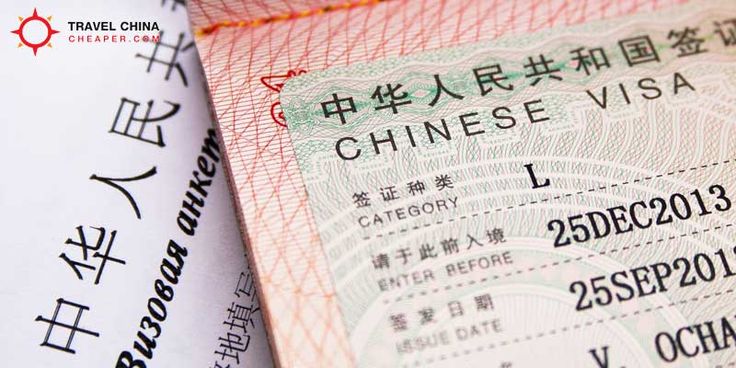Introduction
The China K Visa for Science Talent is Beijing’s latest move to strengthen its innovation ecosystem by attracting international expertise. Announced as part of China’s broader strategy to boost its science and technology sectors, the new visa category is aimed specifically at young global talent in research, technology, and innovation.
This policy comes at a time when competition for top minds in artificial intelligence, biotechnology, and other cutting-edge fields is heating up globally. With the launch of the China K Visa for Science Talent, the country hopes to establish itself as a premier destination for global innovators, signaling its determination to lead in the industries of the future.
Why China is Introducing the K Visa
China has long recognized that its technological rise depends not only on domestic talent but also on attracting expertise from abroad. The China K Visa for Science Talent is part of this effort, addressing several needs:
- Talent shortages: Despite producing large numbers of STEM graduates, China still faces gaps in specialized fields such as AI research and advanced materials.
- Global collaboration: To compete with the U.S., EU, and Japan, China must integrate into international research networks.
- Innovation drive: The visa aligns with China’s goal to become a global innovation hub by 2035.
- Demographic concerns: With a shrinking workforce, China is looking to import highly skilled young professionals.
By targeting early-career researchers, the K visa ensures that China attracts not just established experts but also the next generation of innovators.
Who Qualifies for the China K Visa for Science Talent?
While the full eligibility details are still being finalized, early reports suggest that the China K Visa for Science Talent will be open to:
- Young international scientists and engineers under a certain age threshold (likely 40–45).
- Researchers working in priority fields such as AI, quantum computing, renewable energy, biotechnology, and space exploration.
- Innovators with proven academic or industry achievements.
- Professionals endorsed by universities, research institutes, or companies in China.
This selective approach ensures that only highly qualified individuals enter under this visa program.
Benefits of the K Visa
The China K Visa for Science Talent comes with several incentives to make relocation attractive:
- Simplified visa process with faster approvals compared to other categories.
- Multiple entry privileges to allow global mobility for conferences and collaborations.
- Extended stays of up to five years, with options for renewal.
- Pathways to permanent residence for those contributing significantly to China’s innovation goals.
- Support packages including housing assistance, research grants, and tax benefits in some regions.
These benefits reflect China’s intent to make the visa competitive with similar initiatives in the U.S. and Europe.
Global Competition for Science Talent
The launch of the China K Visa for Science Talent is part of a wider global trend. Countries are competing fiercely to attract scientists and technologists:
- The U.S. has introduced programs like the O-1 visa for individuals with extraordinary ability.
- The EU is expanding its Blue Card program to bring in skilled researchers.
- Singapore and the UAE are also rolling out visas specifically for innovation talent.
China’s entry into this competition signals its readiness to challenge traditional hubs for research and innovation.
Potential Impact on China’s Tech Ambitions
The China K Visa for Science Talent could significantly impact the country’s technological trajectory:
- Boost to AI and emerging tech: More international researchers could accelerate breakthroughs in machine learning and quantum computing.
- Collaboration networks: Foreign talent can strengthen ties between Chinese universities and global institutions.
- R&D leadership: By combining domestic and international expertise, China may close the gap with the U.S. in high-tech sectors.
- Economic growth: Innovation-driven industries can power long-term economic resilience, especially as manufacturing slows.
Challenges Facing the K Visa
While promising, the China K Visa for Science Talent is not without hurdles:
- Geopolitical tensions: Some researchers may hesitate due to strained China–U.S. and China–EU relations.
- Intellectual property (IP) concerns: International experts may worry about how their work is protected in China.
- Integration issues: Cultural and language barriers could make relocation difficult.
- Retention: Attracting talent is one thing; keeping them long-term requires competitive conditions.
To overcome these challenges, China will need to ensure that the K visa is accompanied by clear protections and supportive infrastructure.
Reactions from the Global Community
The announcement of the China K Visa for Science Talent has sparked mixed reactions worldwide:
- Positive: Some experts see it as a chance for increased collaboration and global knowledge-sharing.
- Skeptical: Others argue it could be part of China’s strategy to acquire foreign know-how without ensuring reciprocal access.
- Competitive: Rival countries may strengthen their own talent programs in response, leading to a “brain race.”
Ultimately, the success of the visa will depend on how effectively China balances openness with national security concerns.
Long-Term Outlook
Looking ahead, the China K Visa for Science Talent could reshape global research flows. If successful:
- China could see an influx of thousands of young innovators annually.
- Joint projects between Chinese and international labs could multiply.
- The country might narrow or even surpass gaps with Western competitors in certain industries.
However, if challenges like IP concerns or geopolitical pressures dominate, the K visa may struggle to deliver on its ambitious promises.

Conclusion
The China K Visa for Science Talent is a bold step in China’s quest to become a global innovation powerhouse. By targeting young international researchers and providing them with incentives to relocate, the initiative has the potential to significantly boost China’s science and technology sectors.
While uncertainties remain—particularly around geopolitics and integration—the launch of the K visa demonstrates China’s commitment to competing in the global talent race. If implemented effectively, it could transform not only China’s innovation landscape but also global scientific collaboration.
The China K Visa for Science Talent is more than just a visa—it is a signal of how central science, technology, and talent are to the world’s future power dynamics.
Source:
Xinhua News – China Education & Innovation



